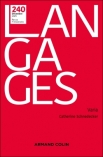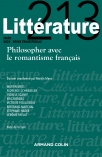
Romantisme n° 135 (1/2007)
Pour acheter ce numéro, contactez-nous
Recevez les numéros de l'année en cours et accédez à l'intégralité des articles en ligne.
La quête lyrique intéresse aussi la question du suffrage universel. En 1830 comme en 1848, on entend par suffrage universel un ensemble d’âmes douées d’inspiration plutôt qu’un réglage constitutionnel du mode d’élection. Le choix pour tel ou tel candidat s’entend naurellement comme un enthousiasme ou une acclamation. Plutôt qu’un bulletin glissé dans une urne, il est un élan spontané et sensible. Lamartine, poète, député de la Chambre en 1834 et chef du gouvernement provisoire en février 1848, fut particulièrement exemplaire par son éloquence parlementaire de la défense d’un choix par conviction sur le modèle du souffle et de l’élan sensibles : en greffant sur sa tribune la défense d’un pays fondé sur l’inspiration commune des âmes démocratiques.
The lyrical quest is also at stake in the question of universal suffrage. In 1830 as well as in 1848, « universal suffrage » refers to a group of souls united by a common inspiration, more than a constitutional regulation of the vote. The election of a candidate is naturally understood as the expression of enthusiasm or the result of a public acclamation. It is not a mere ballot put in a box, but a spontaneous impulse, of sensitive more than rational nature. Lamartine, poet, member of the Assembly in 1834 and prime minister of the provisional government in February 1848, was the exemple of one who would, by the exercise of his eloquence in the Parliement, advocate a choice grounded on conviction, sensitive impulse, vital breath. He saw his position at the Parliement as a way of publicly advocating the conception of a country based on the common inspiration of the democratic souls.

